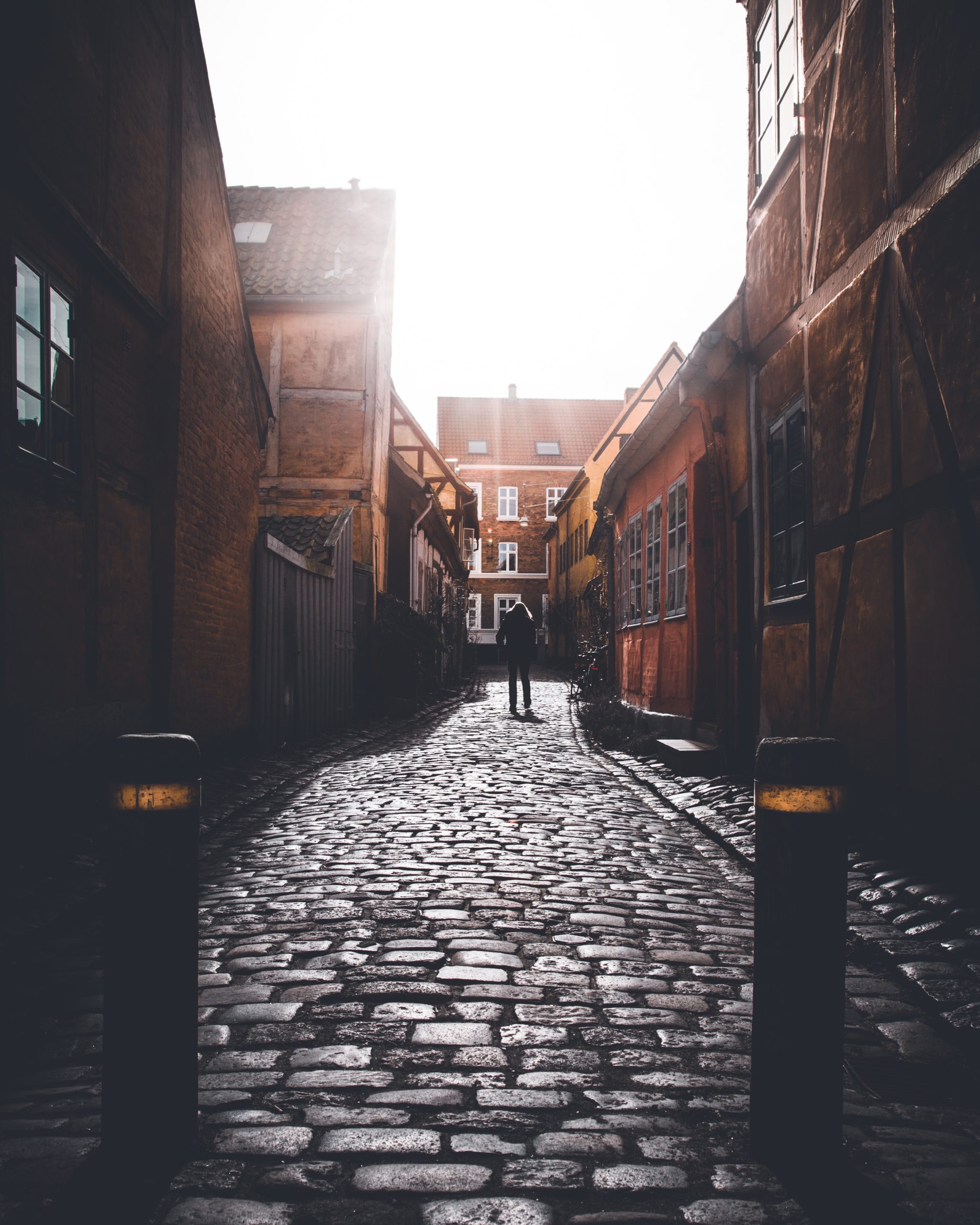Dear Sir,
My apologies that this awful news arrives so close to the holidays but I had some difficulty tracking you down. Your friend, Mme. Valentina Velasquez, has died. Her death was sudden, unexpected but painless, if that eases your mind in any way, and I do hope it does. I know you two had become quite close over the past few years and she was very fond of your acquaintance. She even hoped one day she might assist in finding you a home. Perhaps she still can.
As executor of her will, I’m writing to tell you that at your leisure, you have been granted exactly one item of your choosing from her apartment.
I quote: “Sal was forever helping this old lady up the stairs and we shared many a cup of Earl Grey together, so bestowing a gift to him in my passing is the least I can do.”
Please collect as soon as possible. Others have been named as beneficiaries of her estate and as you read this, are selecting their own keepsakes. Her address (should you need a reminder): 145 Pavilion Ave. Apt. 4. Ask for me, Michelangelo.
See you soon,
Michelangelo Pastori
Sal crumpled the paper and tossed it onto the pile of magazines he used as a pillow. The letter was written on soft parchment, so it’d be nice against his hair, unwashed since October and longer than his bone-sharp shoulders, lanky and square, just like his build and his features. (Well, except for his nose, which crooked like a waterlogged baguette down his face.)
He had liked Mme. Valentina more than he let on. Sal was sad to hear the kind woman who always left three quarters by his blanket, whose thin arm he held as he guided her up to her second-story apartment, whose tea tasted like sweet memories of a life he left behind, would never be again.
He wasn’t homeless. Homeless would mean he didn’t have a home, so for that part of the letter, he thought Michelangelo got it wrong. His home might not have a number―which would explain why the letter took longer than it should’ve to arrive―but it did have two brick walls made from the sides of buildings and a garbage can to store banana peels and macabre secrets and dark corners for bright ideas he knew he’d never make real. Once, he’d been a house painter, slathering blues and pinks on wooden boards but something snapped four years ago and he simply walked away.
Now, he lived the life of a pariah but at least he was happier than when money filled the silver vault in a bank manned by a woman with wiry glasses and an even wirier nose. Under different circumstances he might’ve loved her. She was, after all, his onetime wife he also left. But she never liked him. And he never liked money.
It was too late to visit Mme. Valentina’s apartment tonight but in the morning, when the shadows thinned and the sun escaped into some parts of his little alley, he’d go. He’d find a small treasure for his fallen friend and put it on top of the pile of shattered glass he molded into a side table. Mottled together from someone else’s junk, just like him.
The morning Sal went to Mme. Valentina’s was colder than usual for December 24th. He tiptoed up the stairs and knew exactly which door to knock. Silver brass knocker, broken doorbell. He’d been there enough times. He’d shared many afternoons of tea, conversation and undeserved giggles (Sal’s jokes weren’t funny) from a gray-haired Mme. Valentina, the image of pure kindness forever wrapped in yellow cashmere leisure suits.
“Hello.”
The man who greeted him, Sal guessed, was Michelangelo. He had the air of someone important but short. Sal wondered if his entire life he’d been teased for his name, and then teased again for his height, so to make up for it, he spoke louder than normal and at a very low pitch.
“You must be Sal.”
Sal didn’t care if Michelangelo’s frosty greeting dripped with deprecatory disdain. Michelangelo was there even on Christmas Eve, and Sal could get his one gift then leave. He wasn’t much of a people person since starting his alley cat life. Sometimes, an entire week would go by and the only human he’d speak to would be Mme. Valentina or Jazz Man, a museum curator who passed by his alley at exactly 8 a.m. everyday, whistling like the picture of a cliche on his way to work. Sal wasn’t sure exactly what his name was but he always called him Jazz Man because he hummed Ella Fitzgerald’s classics as he walked by.
The apartment. Back to the apartment. (See? Sometimes he just zoned out and entered a realm disconnected and strange, another symptom of a people-less existence.) Sal started a slow lap around the place, which still looked just as it did when Mme. Valentina had been living there. Or living. There was an odd smell to the air, like too-strong cleaning bleach and murder. He knew Mme. Valentina wasn’t murdered but something heavy hung in the molecules sucked into his nostrils. He cough twice.
“Excuse me.”
It took a few blinks for Sal to realize there was a third person in the room and she was speaking to him. He nodded at the woman dressed in a purple, shoulder-padded blazer and matching purple pants. She looked like she came from a very important boardroom meeting or else a Harry Potter convention for business executives.
“You’re in my way,” she spit out. “Also, a word to the wise from someone who understands the importance of cleanliness: You need a shower.”
Sal smiled. It was true. He wondered when the next rainstorm might be …
“I’ll take this crystal vase, Michelangelo,” the woman told the stout executor. “It’s cracked but it’ll be good to hold my Meyer lemons in the Hamptons house. Everything else is just junk. My older sister loved collecting garbage, may she Rest In Peace.”
Then the purple vixen of professionalism and perfume left, and Sal was again with Michelangelo. That’s when he saw it. Hanging with bold indiscretion on the wall adjacent to the kitchen, which would explain why he’d never seen it before, (his teas were always in the living room at the other end of the place). It was a painting in a dusty, gold frame and its black paint made no less than four looping brushstrokes across his very soul. It was a battle scene, definitely something Spanish, maybe the Moors fighting the Spaniards to the death in Granada long ago. He loved the anger, the intensity, the gripping detail that was so unlike his own days spent with fluid nothingness. This was real. This was why he left painting houses to paint a new life. This painting was the piece he’d been looking for all along.
“I’ll take the painting,” he told Michelangelo.
The executor screwed up his small mouth and patted the three curls left on his mostly bald head. “Really? It’s so ugly and gruesome. I mean sorry, no offense. If that’s what you want, sure, take it. I could never understand why she kept that thing but go for it, it’s all yours. Do you need some kind of wrapping for it or can you just carry it like this? I know it’s pretty dirty, you can’t even make out the artist’s name.”
“I’ll take it like this. Thank you.”
And with that, painting tucked awkwardly beneath his arm, he brought the bulky thing back down to his lair.
Just as he had the painting exactly in the spot where it fit best―on top of his makeshift side table, leaning against one brick wall―he heard the crinkle of newspaper crunched beneath well-intentioned feet and there was Jazz Man, standing not more than two feet from Sal’s lopsided nose. Sal forgot he always came by on Christmas Eve with $5 and a cup of hot chocolate.
“Sal, hi! Merry Christmas!” Jazz Man said, and he really was such a brightly spirited guy, like Christmas itself wrapped inside a person, and Sal hoped one day they might even be friends. They’d listen to Ella and talk about art, which Sal didn’t know much about except for the kind you paint on houses, if that counted.
Taller than Sal, Jazz Man had to lean down to give him a hug and as he did, the hot chocolate fell from his hands, scalding Sal’s left shoulder, which was exposed because his sweater had too many holes.
“What the …?”
Jazz Man seemed frozen, and Sal wasn’t sure what to do. He didn’t have a phone so calling for an ambulance was out of the question. Finally, Jazz Man moved a hand, and in a surprising twist, it landed on his new painting.
“Are you OK?” Sal asked.
“OK? Yeah, man! I’m just in shock. What the heck are you doing with an original Goya? You do know what this is right?”
“Oh the painting? A Goa?”
“No, a Goya. It’s incredibly rare. We have a few at the museum but they’re all under 24-hour security. We actually had to hire a new firm because the old one wasn’t careful and someone touched the glass one day. My director freaked. Dude, this is a Goya! It’s worth millions … tens of millions … no, it’s priceless! Merry Christmas to YOU! I mean, can we take this to the museum and check it out? I can tell from the colors and the brush strokes this is an original but let’s confirm it. Today? I’m working until noon.”
The next twenty minutes saw Sal scuttling behind Jazz Man (whose name might be Bernard) into a beige-painted room filled with lots of people who wore glasses and collared shirts tucked into sweaters. They were buzzing all around the painting, careful not to touch it, ooh-ing, aah-ing and in general, acting a bit like the flies that swarmed around the dumpster by his bed. He named one Edgar.
“Mr. errr, Sal, was it?” (One of the collared-shirts spoke.)
“Yes?”
“We’d like to make you an offer. It is of course, pending a more extensive investigation into the authenticity of this painting but we are prepared to pay you $12 million, in six installments over the next two years. Does that sound like something you’d be interested in? We’d of course have to check with our accounting department but our CFO is a big fan of Spanish art. I’m fairly confident this deal can be arranged.”
He paused. Staring at the arty throng. Jazz Man was somewhere in the back and Sal almost thought he heard “Take the A Train” humming lightly in the background.
“$12 million?” Sal asked again, not sure he heard the words right.
“$12 million. Yes. How about that?”
“How about that?” Sal repeated, slowly and with the dramatic effect he thought the moment deserved. It was almost as if he was standing there but not, watching the scene from above like some master puppeteer who already knew the next move. It was choreographed. Everything was already written in the script. He knew what he was going to say before the words appeared on his thin, cracked lips. “Your offer is quite generous and it would be an honor to put this work of art in your museum, although it would have to be cleaned first because it’s dirty …”
“Wonderful! We’ll get the paperwork started …”
“But I can’t give this to you for any price. It belongs in my alley, like me, and as long as I have it with me, in my mind that’s all the riches I need. Money is only cool if you care about it. And I just don’t care.”



Yay Melissa! Loved it! Some awesomely witty lines! Well done….
I had assumed Sal would refuse the monetary offer. You see, the painting was a memento of the only persona who had befriended him in his condition, and he couldn’t part from it, from the one concrete item that connected him.
Excellent piece Melissa. Loved it. Glad to see you back. Keep going.